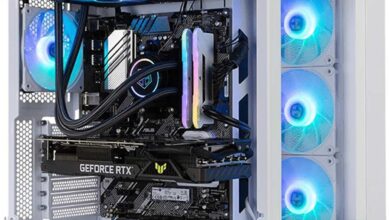 The Initial Public Offering (IPO) process offers investors an exciting opportunity to invest in companies at their market debut. One crucial part of the process is IPO allotment, where shares are distributed to applicants based on specific criteria. Many investors wonder, how is IPO allotment done, and what happens after the process is completed. Additionally, some parents ask, can minor apply for IPO, and what are the rules in such cases.
The Initial Public Offering (IPO) process offers investors an exciting opportunity to invest in companies at their market debut. One crucial part of the process is IPO allotment, where shares are distributed to applicants based on specific criteria. Many investors wonder, how is IPO allotment done, and what happens after the process is completed. Additionally, some parents ask, can minor apply for IPO, and what are the rules in such cases.
In this article, we will explain how long IPO allotment takes, how the process works, and what happens after allotment.
How is IPO allotment done?
The IPO allotment process is typically handled by the company’s registrar, which ensures a transparent and fair distribution of shares to applicants. IPO allotment depends on several factors, including demand, the number of shares offered, and regulatory guidelines.
Steps in IPO allotment:
- Categorisation of applicants: Investors are categorised into different groups, such as retail investors, institutional investors, and high-net-worth individuals (HNIs). Retail investors can apply for shares worth up to Rs. 2 lakhs, while institutional investors and HNIs may apply for larger amounts.
- Oversubscription and lottery system: When an IPO is oversubscribed—meaning more applications are received than available shares—the allotment is done through a lottery system for retail investors. This system ensures a random and fair distribution of shares.
- Proportional allotment for large investors: For HNIs and institutional investors, allotment may be done proportionally. If there are more shares applied for than available, the shares are allocated in proportion to the amount applied for.
- Refund of excess amounts: If the IPO is oversubscribed and not all applicants receive shares, the excess amount paid by unsuccessful applicants is refunded to their bank accounts.
How long does IPO allotment take?
The IPO allotment process typically takes 5 to 7 working days after the IPO subscription period closes. During this period, the registrar finalises the allotment and ensures that shares are distributed according to the rules. Investors can check the status of their allotment online through the registrar’s website or the exchange.
Once the allotment is finalised, shares are credited to the successful applicants’ Demat accounts, and refunds are issued to those who did not receive shares.
Can a minor apply for IPO?
Can minor apply for IPO? Yes, a minor can apply for an IPO, but there are specific rules and guidelines that need to be followed. The application process must be managed by a parent or guardian on behalf of the minor. Here’s how it works:
Requirements for minors:
- Demat account in the minor’s name: A minor must have a Demat account to hold shares, and the account is managed by a parent or guardian until the minor reaches adulthood. The parent or guardian acts as the account custodian.
- PAN card: A valid PAN card in the minor’s name is required for any investment, including IPO applications.
- Bank account linked to Demat account: The minor’s Demat account must be linked to a bank account for fund transfers related to IPO investments.
- Application process: The parent or guardian must apply for the IPO using the minor’s details, including their Demat and PAN numbers.
Although minors can apply for IPOs, they must rely on their parents or guardians to handle all aspects of the process. Once the minor reaches the age of 18, they gain full control of their accounts.
What happens after IPO allotment?
After the IPO allotment process is complete, the next steps are critical for investors who receive shares. Here’s what happens:
1. Credit of shares to Demat account
If you receive shares in the allotment, they will be credited to your Demat account. This usually happens within 1-2 working days after the allotment process is finalised. You can then view the shares in your account, and they become available for trading on the stock exchange on the listing day.
2. Refund for unsuccessful applicants
For investors who do not receive any shares, the amount paid during the IPO application process is refunded. The refund process is typically quick, and the funds are returned to the linked bank account within a few days.
3. IPO listing
The company’s shares are listed on the stock exchange a few days after the allotment is finalised, typically within 7 to 10 days of the IPO closing. On the listing day, investors can buy and sell the shares on the exchange at the market price.
4. Price fluctuations on listing day
The listing day is often volatile, as the market reacts to the company’s stock being publicly traded for the first time. The stock may open at a premium or a discount compared to the IPO issue price, depending on investor demand and market sentiment. Investors can choose to sell their shares on the listing day or hold them for the long term, depending on their investment strategy.
5. Lock-in period for certain investors
For company insiders, promoters, and other large investors, there may be a lock-in period. During this time, these shareholders are restricted from selling their shares to prevent excessive selling pressure in the early stages of the company’s public trading. Retail investors and minors who apply for IPOs are not subject to this lock-in period.
Key considerations for IPO investments
1. Market volatility
The listing day can be volatile, and prices may fluctuate significantly. While some investors book profits by selling on the listing day, others may hold the shares for long-term gains. It’s essential to assess your investment goals before making a decision.
2. Chance of non-allotment
Even if you apply for an IPO, there’s no guarantee of receiving shares, especially if the IPO is oversubscribed. In such cases, the refund process ensures that no money is lost.
3. Investment strategy for minors
If you’re applying for an IPO in a minor’s name, remember that the investment is likely for the long term. Align the IPO investments with broader financial goals, such as saving for education or future wealth creation.
Conclusion
Understanding how IPO allotment is done and can minor apply for IPO helps you navigate the investment process more effectively. The IPO allotment typically takes 5 to 7 days, and after allotment, shares are credited to the investor’s Demat account. With the right knowledge, IPOs can provide excellent opportunities to grow wealth, whether investing for yourself or a minor.







